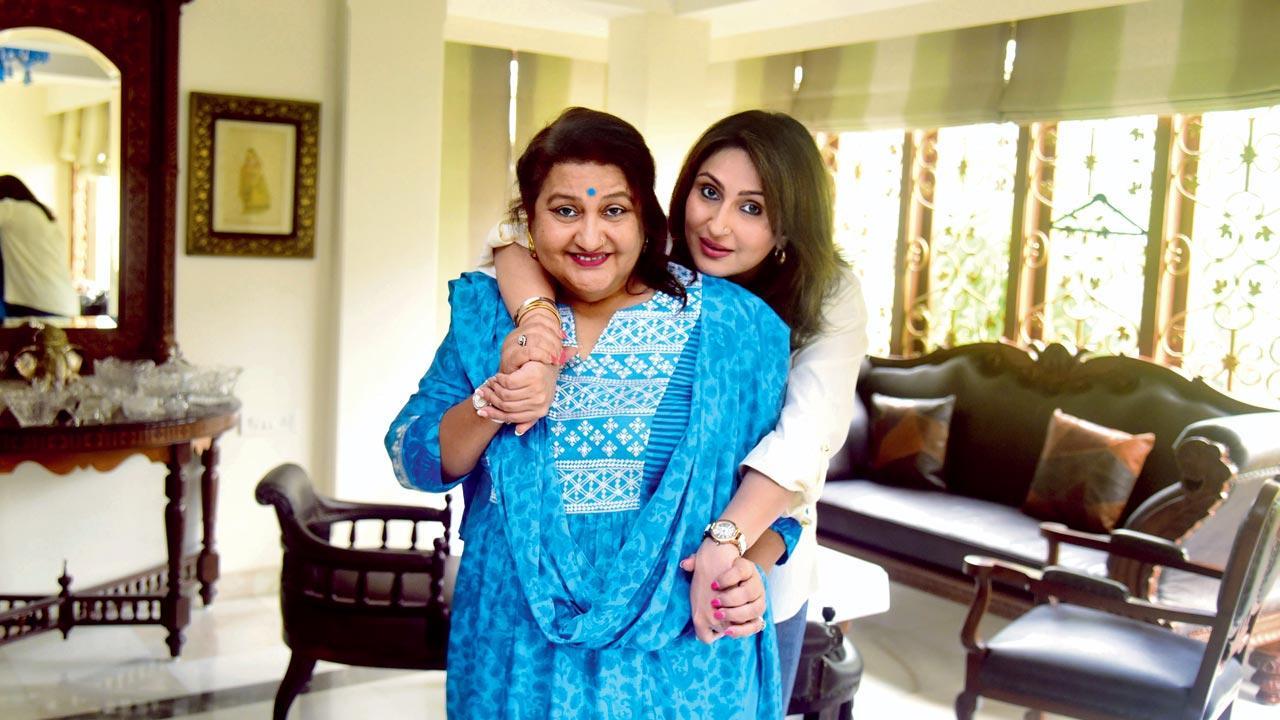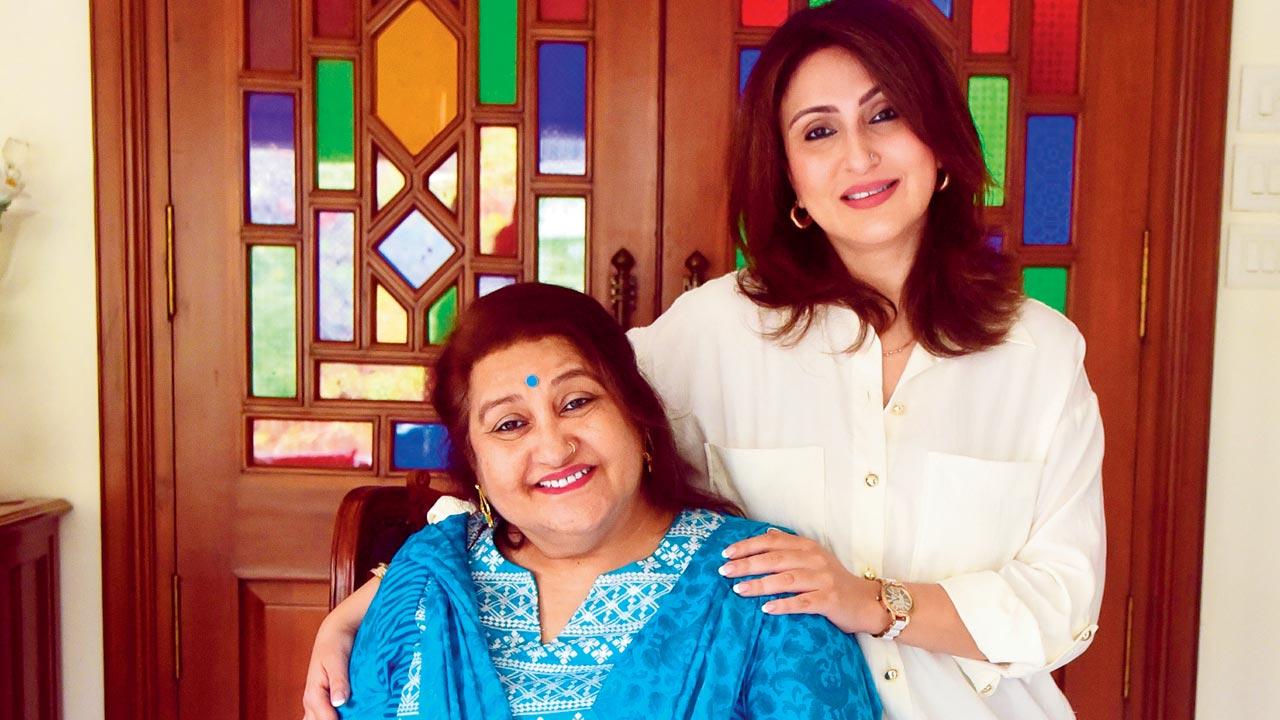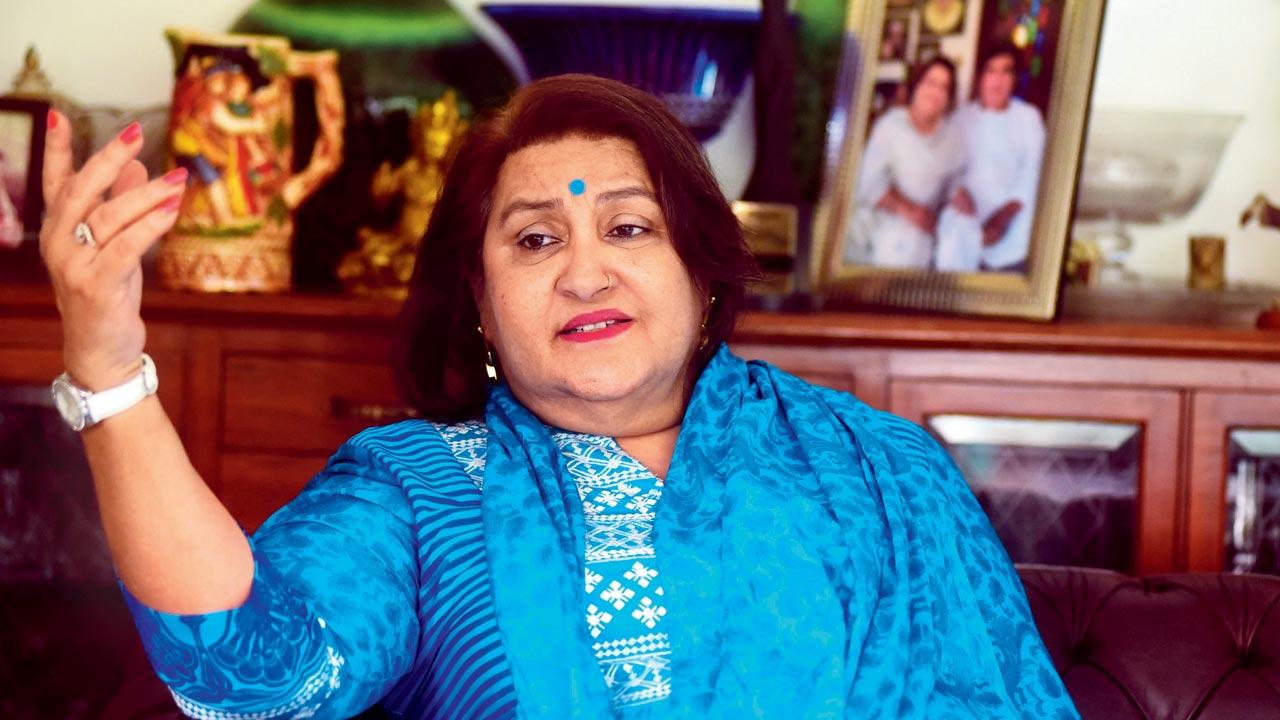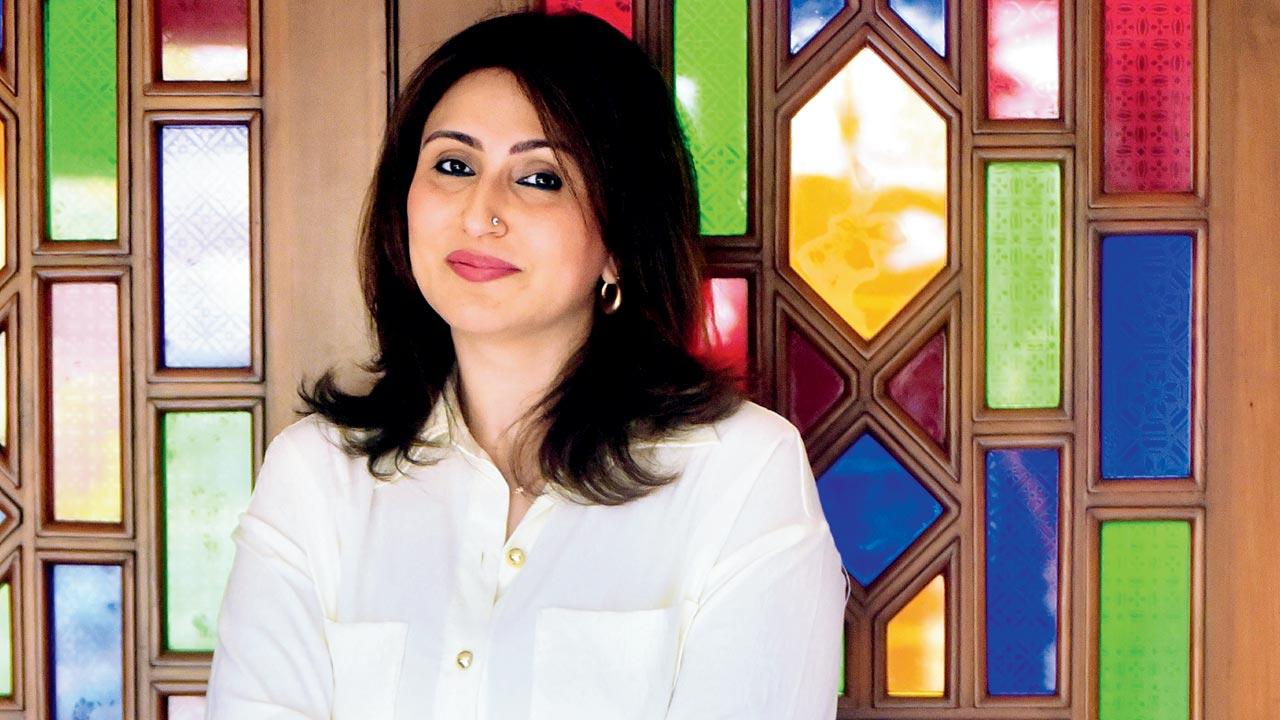As their theatre group Ekjute enters its 41st year, Juhi Babbar hopes to see mom and legend, Nadira, on stage more often

Ekjute, founded by Nadira Zaheer Babbar in 1981, has performed some popular Hindi plays includling Yeh Hai Bombay Meri Jaan, Ji, Jaisi Aapki Marzi and Sakubai. Pic/Shadab Khan
It was in 1981, soon after shifting to Mumbai from Delhi, that Nadira Zaheer Babbar, an alumna of the National School of Drama (NSD), started her theatre company, Ekjute. The idea, she says, was to do theatre just as she was doing in Delhi. “When things worked out well for Raj [Babbar], actors who were working with us back in Delhi too came to Mumbai looking for work. They wanted to work, do theatre… so we created Ekjute. The name symbolises the coming together of everyone,” says Babbar. Her daughter, Juhi Babbar Soni, says Ekjute has always been family. “I was barely five years old when Ekjute was put together. Our house was home to so many theatre actors who had come down from Delhi [NSD], so everybody was either a chacha or didi… If my mother was stuck with something when we needed help with our homework, one of the actors would look into it.”
ADVERTISEMENT
The initial members of Ekjute included Anupam and Kirron Kher, Satish Kaushik, Kavita Chaudhary, Raja Bundela, and Alok Nath, among many others. “Kirron worked in Chandanpur Ki Champabai, Satish directed Us Paar Ka Nazara,” she shares, adding that they eventually started getting parts in multiple television shows at a time, and couldn’t make time for theatre. When asked whether she was hurt by this, she admits that she was. “It was painful, but I didn’t expect them to continue when they had things working out for them [in television and cinema]. How else would they make a living?”
 Juhi Babbar Soni began her acting career with the play Yahudi Ki Ladki. Interestingly, it is the very first play that her mother Nadira Zaheer Babbar not only directed, but also started her theatre company Ekjute with. Pics/Shadab Khan
Juhi Babbar Soni began her acting career with the play Yahudi Ki Ladki. Interestingly, it is the very first play that her mother Nadira Zaheer Babbar not only directed, but also started her theatre company Ekjute with. Pics/Shadab Khan
Ekjute is now in its 41st year. Reflecting on her journey so far, she says, “Even I can’t believe it has completed 40 years. I never even dreamed of it; I only wanted to do theatre. However, today Ekjute is my life. It is difficult to say whether it is surviving because of me or I am surviving because of it.”
Although she describes theatre as soul sustenance, this wasn’t always the case. “I wasn’t good at studies,” she says, “While both my elder sisters were on the merit list in school, I was always scoring third division. They humoured me until I completed my BA. We had also moved to Delhi from Lucknow by then, and my sisters landed jobs. After I graduated, the entire family sat down together to discuss my career options. Nobody had an answer. Master of Arts was out, considering my marks until then. They even considered library science so that I could work as a librarian. I suggested I do nothing and eventually just get married! Coincidentally, my father met Ebrahim Alkazi [renowned theatre director, then the director of NSD] at a wedding reception and he suggested that I apply to NSD. I went but the classes didn’t interest me; I found acting and improvisation boring. However, a student cast me in his play for the final year exam, which did so well that my name was mentioned in a newspaper! A friend showed me a clipping of the article and I thought, ‘I can be good at something! I too have a skill’ and that’s how it started.”
 Nadira Zaheer Babbar
Nadira Zaheer Babbar
Since then, there has been no looking back for Babbar. She was honoured with the Sangeet Natak Akademi Award in 2001, and Ekjute has produced close to 100 plays to date. They are as diverse as Yeh Hai Bombay Meri Jaan, which offers a glimpse into the lives of five people who move to Mumbai to pursue their dreams and live together in a small one-room apartment and Ji, Jaisi Aapki Marzi, a play about four women, at various stages of their lives, talking about their traumas; as well as Sakubai, the mono-act starring Sarita Joshi that looks at the lives of women we all call “bai”.
Almost all her plays have an underlying social message or delve into social issues, and no subject is beyond limits. One of her plays, titled Suman and Sana, is based in Gujarat and Kashmir, and addresses fanaticism. She says she inherited the political and social sensitivity from her father, Syed Sajjad Zaheer. He was a Marxist and founder of the Progressive Writers’ Movement. “It’s all because of what I heard around me,” says Babbar. Intellectuals such as poet and playwright Sheila Bhatia and playwright Mohan Rakesh (one of the pioneers of the Nai Kahani literary movement of Hindi literature in the 1950s) were frequent visitors to their residence.
 Juhi Babbar Soni
Juhi Babbar Soni
Her daughter began her acting career with Ekjute. “Like any other person, I too had to attend a theatre workshop to enter Ekjute,” says Soni, “I worked backstage for close to two years; my experience in fashion designing helped with the costumes. In between, I got my first role in Yahudi Ki Ladki [written by Agha Hashr Kashmiri, it was also the first play that Babbar directed back in 1981. It explored the persecution of Jews by the Romans] and I played Shehzadi Desiya. In terms of importance, it was a supporting role. So it has been a step-by-step process for me.”
Soni marked Ekjute’s 40th year in theatre by writing, directing and acting in With Love, Aap Ki Saiyaara.
“We opened it in October 2021, in that brief period when life was returning to normal. It’s coming back again,” adds Soni, who has been touring with the play, which comes back to Mumbai at the Prithvi Theatre next week on May 22 and at the NCPA on May 28.
Currently, Soni has her finger in every pie baked by Ekjute. The most important one is the summer workshop for children aged between six and 12, where she works with 250 to 300 students. When asked when she took the reins of Ekjute, she replies, “I still correct people when they say I work with my mother. I work ‘for’ my mother.”
Ekjute’s new offering is a series of plays, including Kudugusu aur Shivji—a children’s play based on Sudha Murthy’s short stories—by Babbar. “I have been writing quite a few plays,” Babbar says, “one among them is a love story.”
And what are the plans for the decade? Soni says she wants her mother to be on stage more. “She is also a poet,” says the doting daughter. “One of her poems, which she wrote for her mother, became a one-and-a-half-hour-long mono-act titled Meri Maa Ke Haath. I hope to tweak it to make it more comfortable for her to perform now. It is lengthy and she is in her 70s.” Babbar, who has also been busy writing new plays, agrees. “I want to do good roles so if I get a script, I would like to do it. Even in theatre, if someone has a lead role for me, I am happy to take it on, and if I write such play, I think it would be nicer to act and direct it as well.”
 Subscribe today by clicking the link and stay updated with the latest news!" Click here!
Subscribe today by clicking the link and stay updated with the latest news!" Click here!







